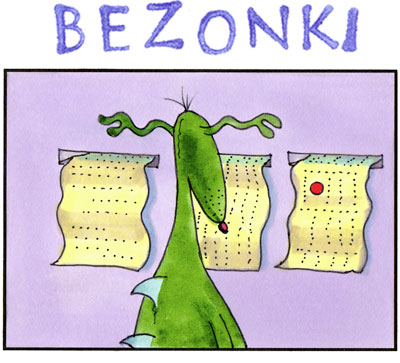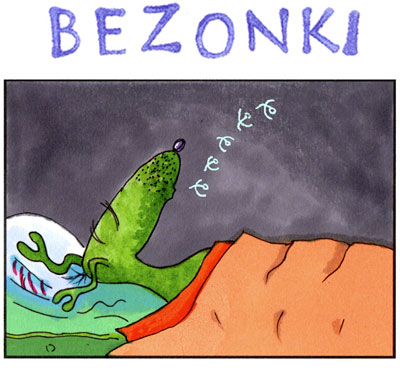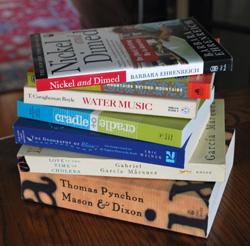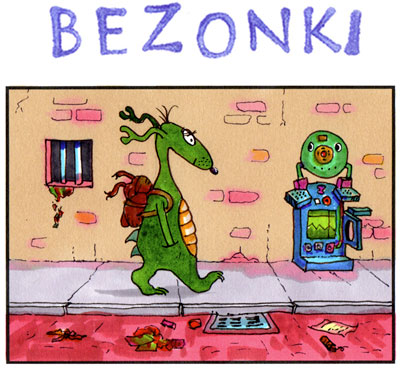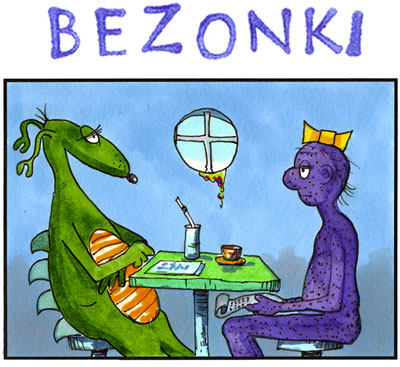[Editor's Note: HD, a.k.a. Dave Askins, editor of The Ann Arbor Chronicle, is also publisher of an online series of interviews on a teeter totter. Introductions to new Teeter Talks appear on The Chronicle.]

Brian Kerr
Nine months have now passed between views of the world from the end of a teeter totter. This most recent view down the board was of Brian Kerr. One way I know Brian is as a downtown pedestrian who strolls hatless down the sidewalk, even in bitterly cold weather, and who must be admonished as you bicycle past: “Put on a hat, it’s cold out here!”
The chosen venue of our teeter totter ride was the middle of the intersection of Main and Liberty streets last Saturday morning, the last day of the Ann Arbor art fairs. We compromised on our chosen venue somewhat by moving to the edge of the intersection, to accommodate concerns of art fair staff.
It was a small concession to make – we’d already dealt with the disappointment of being denied access to the bottom of the pit being dug for the underground parking garage along Fifth Avenue, just to the northeast. Construction sites can’t reasonably be expected to be made accessible to random members of the general public – patrons of the arts, teeter totter riders, wheelchair users, the blind. That makes construction sites somewhat different from websites.
Under the Section 508 amendment of the federal Rehabilitation Act of 1973, federal agencies are required to make their websites accessible to people with disabilities. It’s a different piece of legislation from the Americans with Disabilities Act, which just recently celebrated its 20th anniversary. But Section 508 is to websites what the ADA is to buildings – the idea is to make things accessible to disabled people.
Kerr works for a company called Deque, which specializes in helping to make websites work well for hearing- and visually-impaired people.
Here’s a simple example. Visually impaired people sometimes use a screen-reader to get information from a website – it’s a software program that tries to interpret the page using text-to-speech technology. If there’s a picture on a page, say of a guy sitting on teeter totter, then what the screen reader interprets – and what the visually-impaired person hears – is just an indication that there’s an image. If the author of the page supplies some description in the “behind the scenes” coding, the visually-impaired person might hear: “Brian Kerr, who is sitting on the end of a teeter totter. The view is down the board.”
Like librarian Metta Landsdale, Kerr has a professional interest in making information accessible to people. And like Lou Rosenfeld, Kerr is a product of the master’s degree program at the University of Michigan School of Information. And like Brandon Zwagerman, Kerr was one of a group of co-founders of ArborUpdate, a now-defunct local news and discussion website.
But there’s something else that Kerr has in common with Landsdale, Rosenfeld and Zwagerman. [Full Story]






